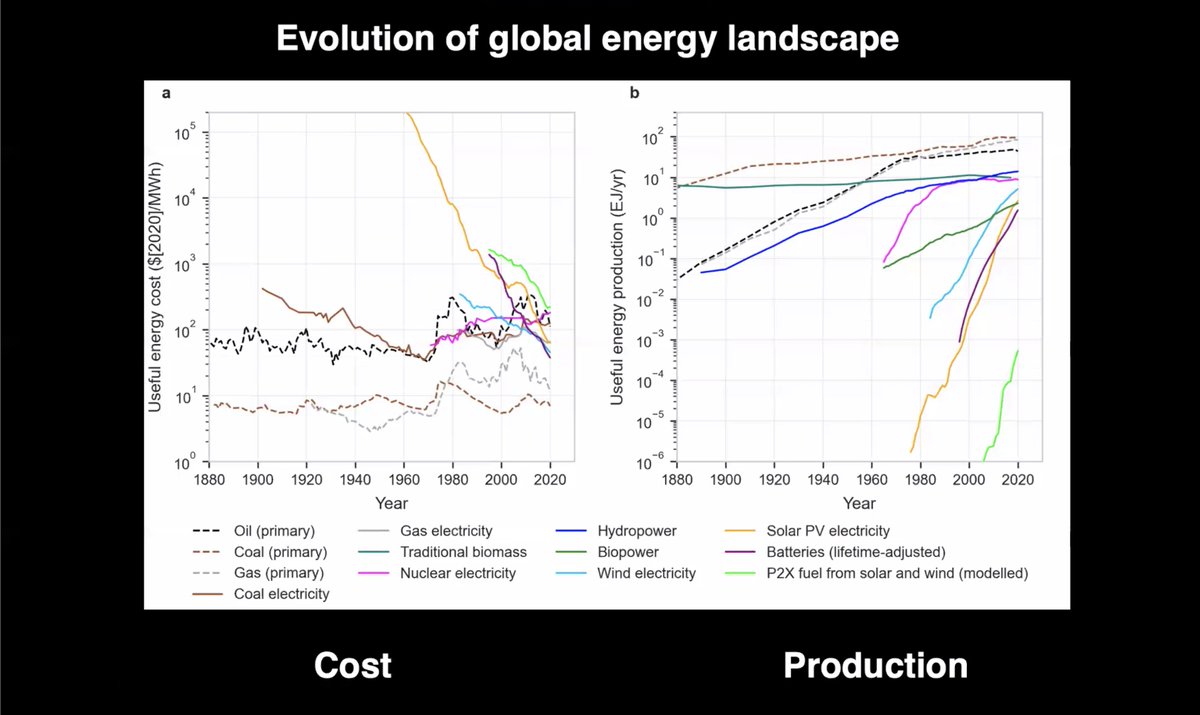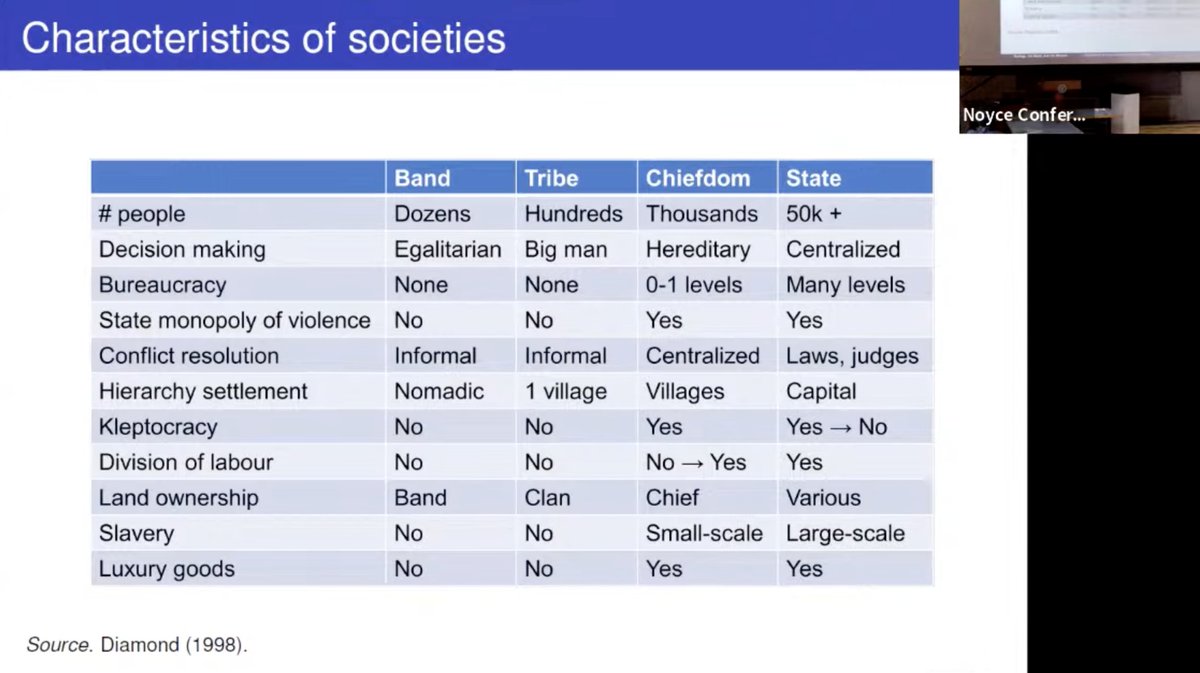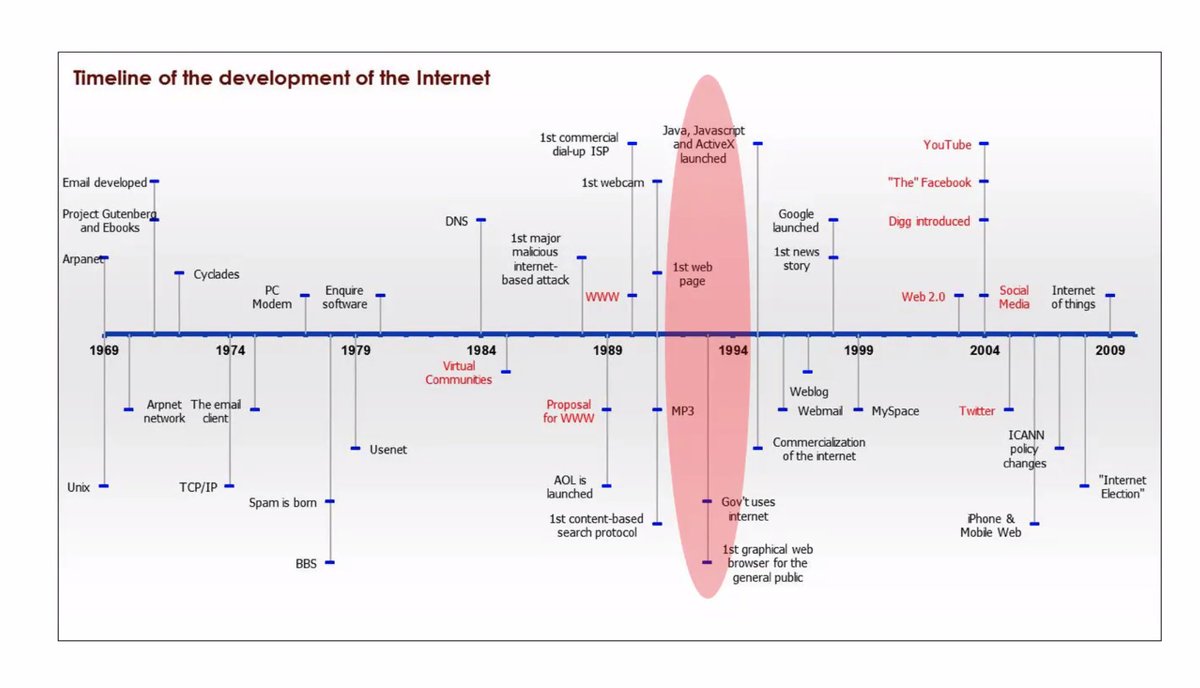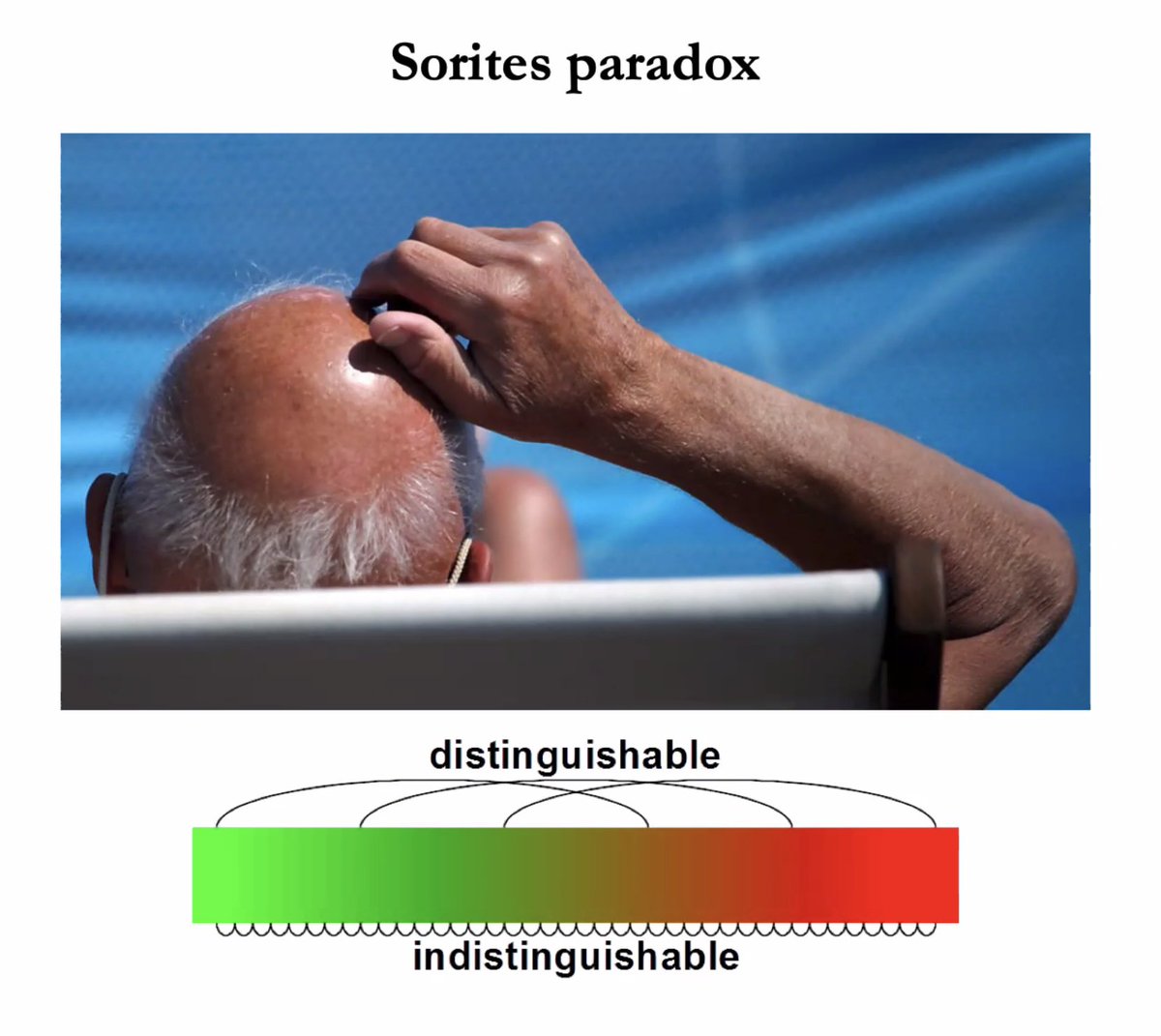
🧵 "Designing #ActiveMatter in Space-time"
Today's SFI Seminar by @SurajShankar92 (@Harvard), streaming now:


Today's SFI Seminar by @SurajShankar92 (@Harvard), streaming now:


"I consider the Organism, or natural Machine, a machine in which each part is a machine."
- #Leibniz
🦠 Energy → Work
"Active matter *employs* control, either internally [e.g., embryogenesis] or externally [e.g., with sheepdogs]."
- @SurajShankar92

- #Leibniz
🦠 Energy → Work
"Active matter *employs* control, either internally [e.g., embryogenesis] or externally [e.g., with sheepdogs]."
- @SurajShankar92


@SurajShankar92 A potent control mechanism for active matter: using #optogenetics to paint portraits and drive micro-robotic ensembles made of modified #bacteria.
"What are the rules you need to follow and the policies you need to enact?"
- @SurajShankar92 contemplates design principles:

"What are the rules you need to follow and the policies you need to enact?"
- @SurajShankar92 contemplates design principles:

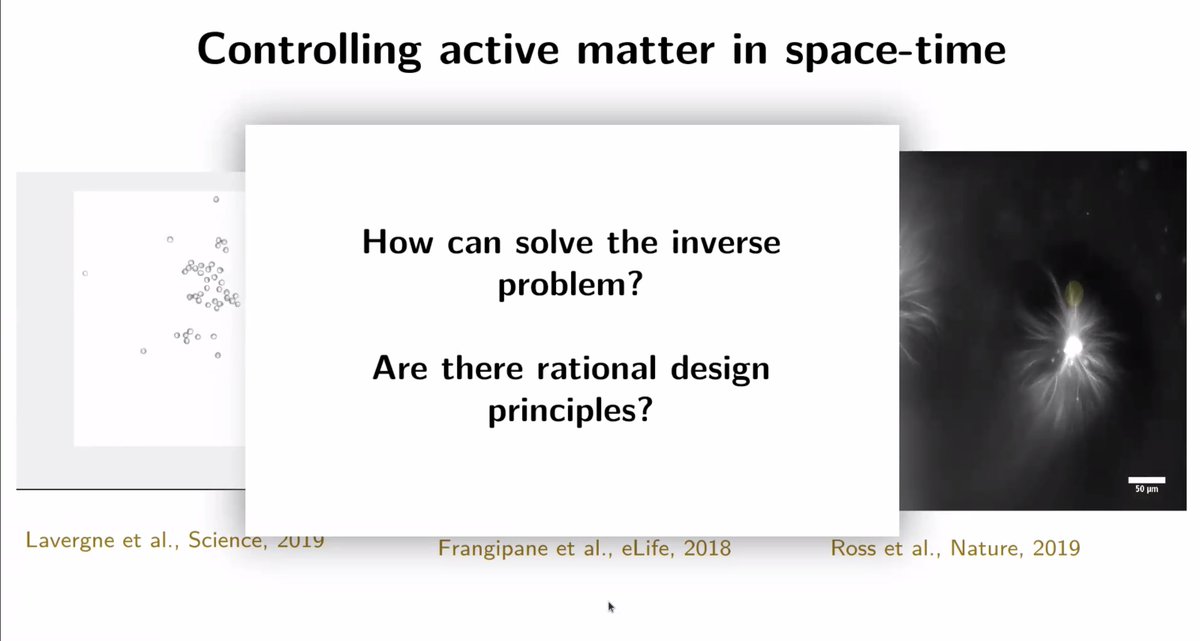
Optimizing a balance between forces, @SurajShankar92 seeks the least work required to move a drop without changing its shape.
Size, however, is variable. "It's like a dinner party: first, you gather everyone together..."
#SurfaceTension #Physics

Size, however, is variable. "It's like a dinner party: first, you gather everyone together..."
#SurfaceTension #Physics


"You can INCLUDE shape change; once you do that the problem has to be solved numerically. Once you allow shape change you have to ask how strong are the active forces relative to the passive forces. For small capillary numbers, surface tension dominates."
- @SurajShankar92

- @SurajShankar92


"Perhaps cells DO use strategies that are perhaps similar, if not the same, as what we obtain from this optimization process."
On optimization in evolving systems:
"It's been shown in *several* contexts that what we see E. coli doing is the best it *can* do."
- @SurajShankar92
"It's been shown in *several* contexts that what we see E. coli doing is the best it *can* do."
- @SurajShankar92
"You can use local excitations to carry information. You can think of this [magnetic] vortex-like structure as an entity unto itself, and think of the swirling as a bit. All of these systems are continua, and a common way of controlling them is by creating localized excitations." 

"There are two key excitations in these systems: one is this trifoil-shaped structure & the other is this comet-shaped thing."
"How should we think about control in such a system? Can you design strategies and protocols for assembling these defects into configurations we like?"


"How should we think about control in such a system? Can you design strategies and protocols for assembling these defects into configurations we like?"


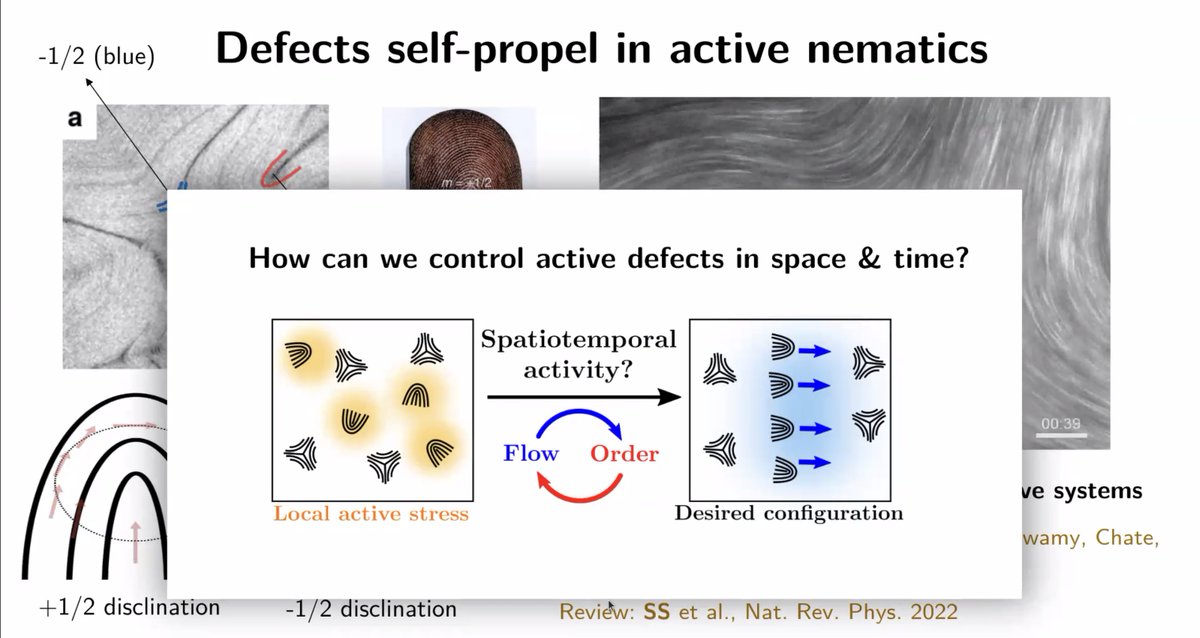
"Symmetry is the key. The +1/2 defect can be described by a vector. The -1/2 defect is described by a complex number. How do we model these systems? By writing hydrodynamical equations...it couples order to flow."
"Viscosity dominates and force balance is linear."
"Viscosity dominates and force balance is linear."
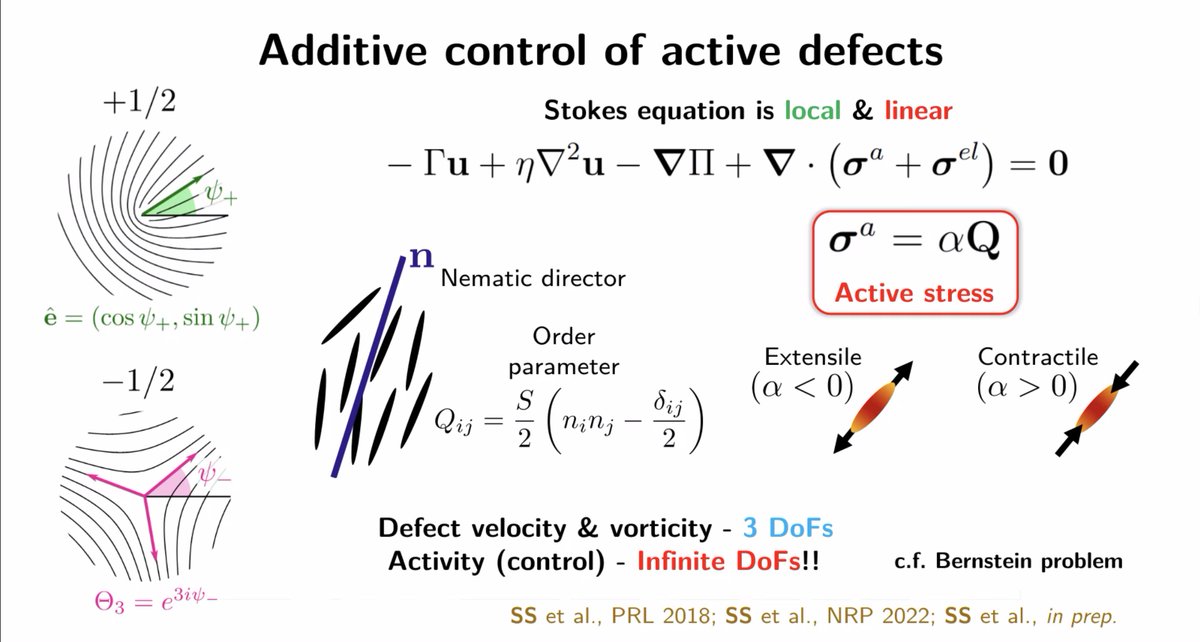
"For constant activity, the +1/2 defect moves & the -1/2 defect stays put."
"This allows us to collapse an ∞ degrees of freedom..."
Re: +1/2, "The direction of the parabola allows you to choose the direction of the flow."
"You can build any complex trajectory that you wish."



"This allows us to collapse an ∞ degrees of freedom..."
Re: +1/2, "The direction of the parabola allows you to choose the direction of the flow."
"You can build any complex trajectory that you wish."




• • •
Missing some Tweet in this thread? You can try to
force a refresh












